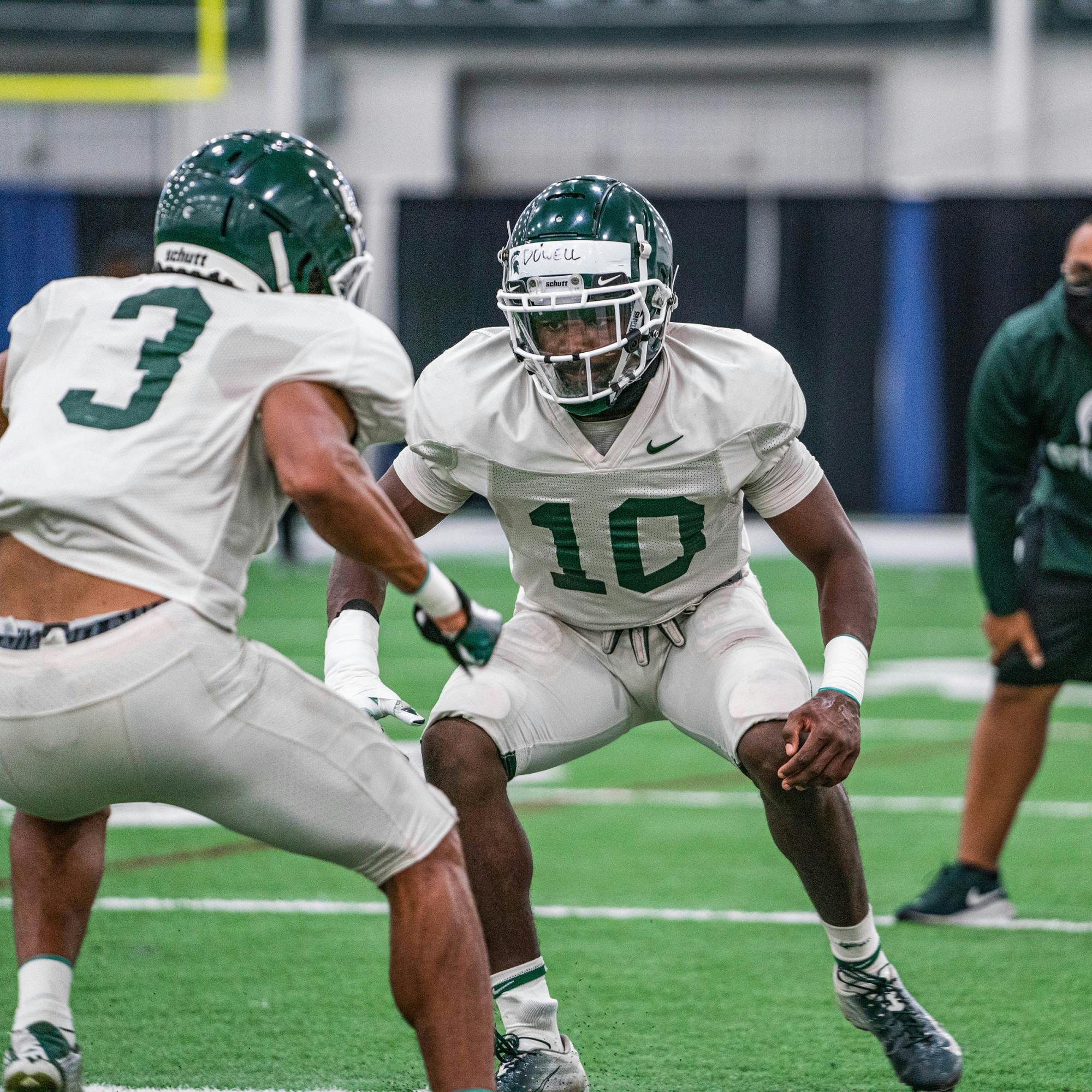Since welcoming athletes back on to campus for voluntary practices June 15, Michigan State athletics has conducted more than 2,660 COVID-19 clinical polymerase chain reaction, or PCR, tests on athletes and staff members, with 151 total positive tests, according to the latest release on Oct. 16. Across MSU student athletes, there is a 5.7% positivity rate,
According to the Food and Drug Administration, PCR tests are the nasal swab diagnostic tests that detect the virus’s genetic material. This is separate from antigen tests, which detect the virus’s specific proteins on its surface. Both tests are generally taken if a person has an active COVID-19 infection, whether it’s symptomatic or asymptomatic.
Big Ten football and hockey began antigen testing six times a week as well as cardiac screening. Michigan State’s reported data up to this point reflects both athletes and staff in all sports participating in on-campus training.
During the Michigan State football team’s quarantine in late July, athletes and staff went through “surveillance testing” after finding four staff members tested positive for COVID-19. Their following release leaves the exact amount of staff tested during the surveillance testing unclear, using the words “more than 100 staff members” to identify those that had been tested since June 15.
The week of Aug. 7-14 was similarly worded with “more than 250 tests” given to staff and athletes, leaving the exact number unclear.
The first four weeks of reporting included the exact number of athletes tested, but not the exact number of staff tested, only that no staff member tested positive. Michigan State athletics confirms all 148 positive tests in the press releases, but the total confirmed number of tests administered excludes 73 tests.
MSU Athletic Department spokesperson Matt Larson confirmed that the total number of tests from the latest release are accurate.
For the Big Ten, team positivity rate is one of the most important factors in determining whether practices or games can be held in a given week for football and now hockey. In their extensive COVID-19 guidelines, a team positivity rate — athletes only — of more than 5% and a population positivity rate — players and staff — of more than 7.5% would require a minimum seven-day postponement of team activities and games, or until positivity rates improve.
In July, team activities for MSU football already were halted after two staff members tested positive for COVID-19, and later turned into 20 total cases across MSU athletics.
When the general student population began to return to Michigan State, cases within athletics rose again in early September, peaking at 46 cases from Sept. 7-14 and 32 cases the following week.
While Big Ten football and hockey will begin antigen testing six-days a week instead of the PCR tests mentioned above, men’s and women’s basketball as well as volleyball are currently participating in Michigan State’s COVID-19 Early Detection Program five times a week. Students at Michigan State currently can only utilize the program once a week at maximum.
Athletes in those three programs who are recommended for more clinical diagnostic testing will receive a PCR test.
Michigan State will also conduct weekly surveillance testing going forward with the other sports outside of football, men’s and women’s basketball, hockey and volleyball. Approximately 5% of those athletes will be randomly selected each week for testing. Any athletes experiencing symptoms will have access to a test.
With the Big Ten football season starting Oct. 24, there is no room for bye weeks to supplement a possible postponement. The near-daily antigen testing will be a crucial component in keeping COVID-19 from derailing football games in the Big Ten.
This article is part of our Halloween print edition. Read the entire issue here.
Support student media!
Please consider donating to The State News and help fund the future of journalism.
Discussion
Share and discuss “A look into Michigan State athletics' COVID-19 data” on social media.








